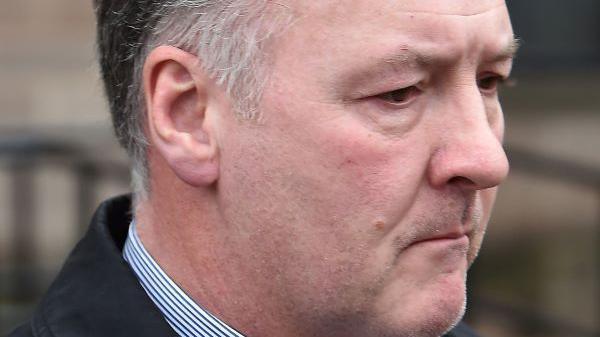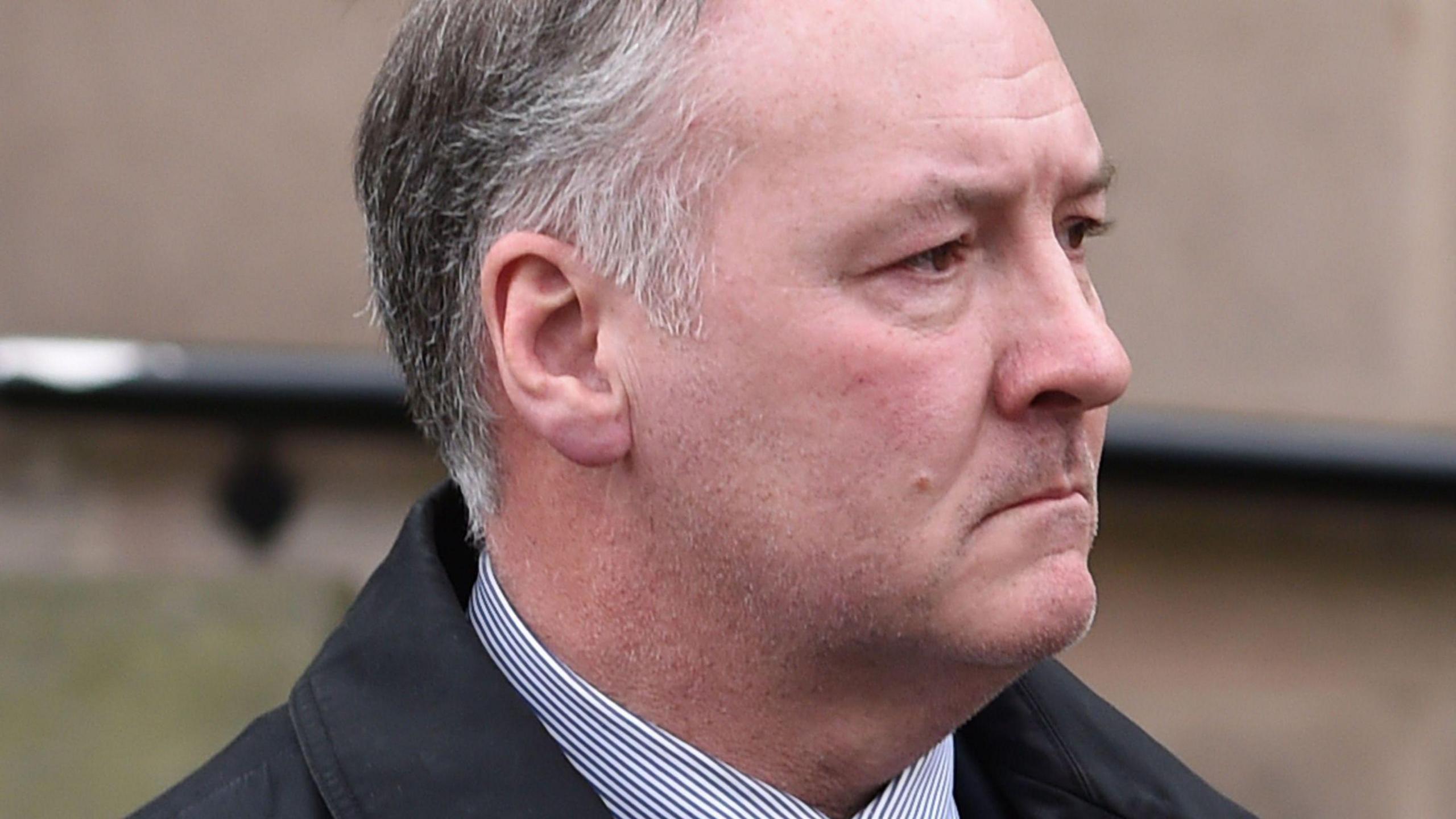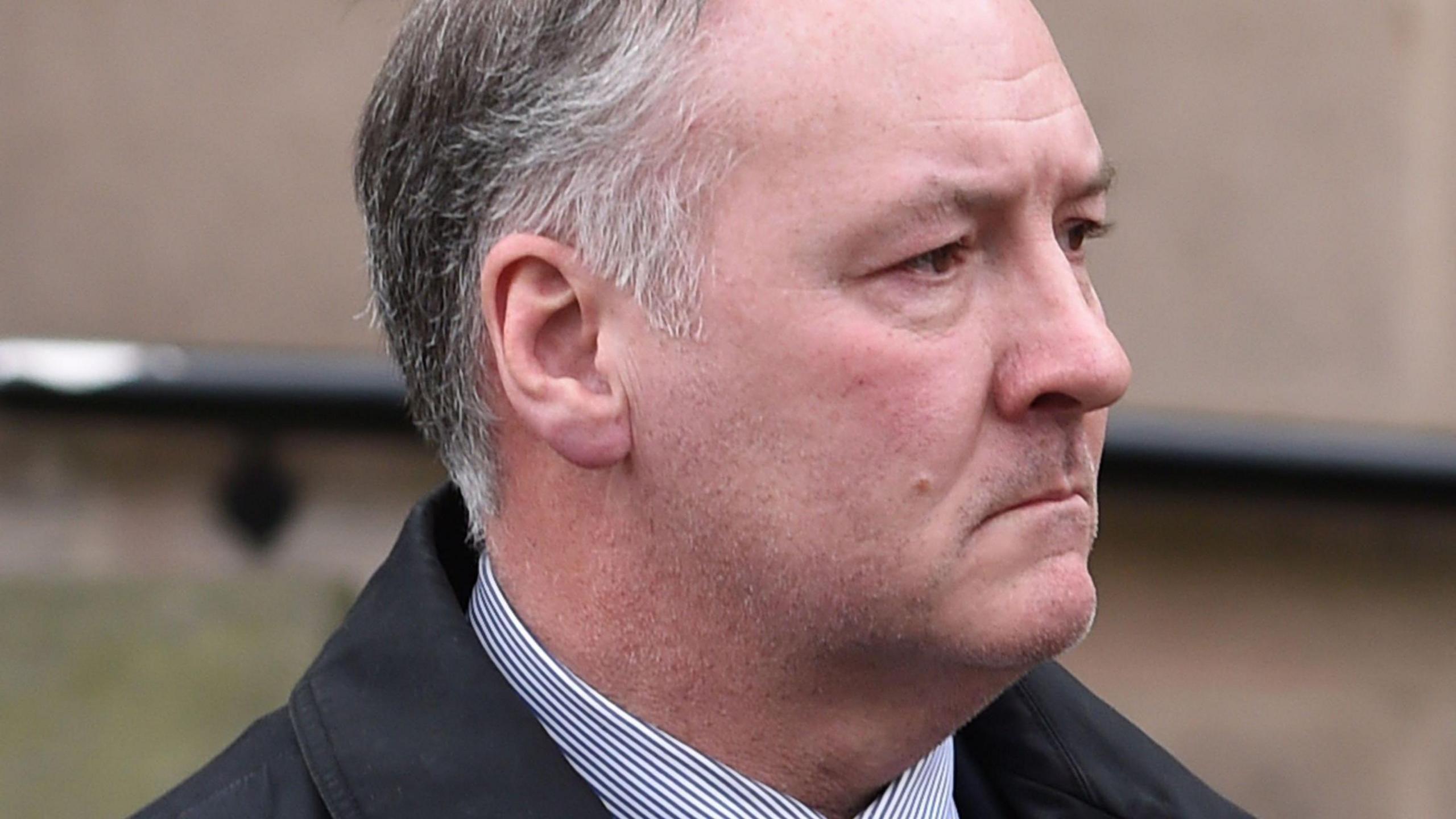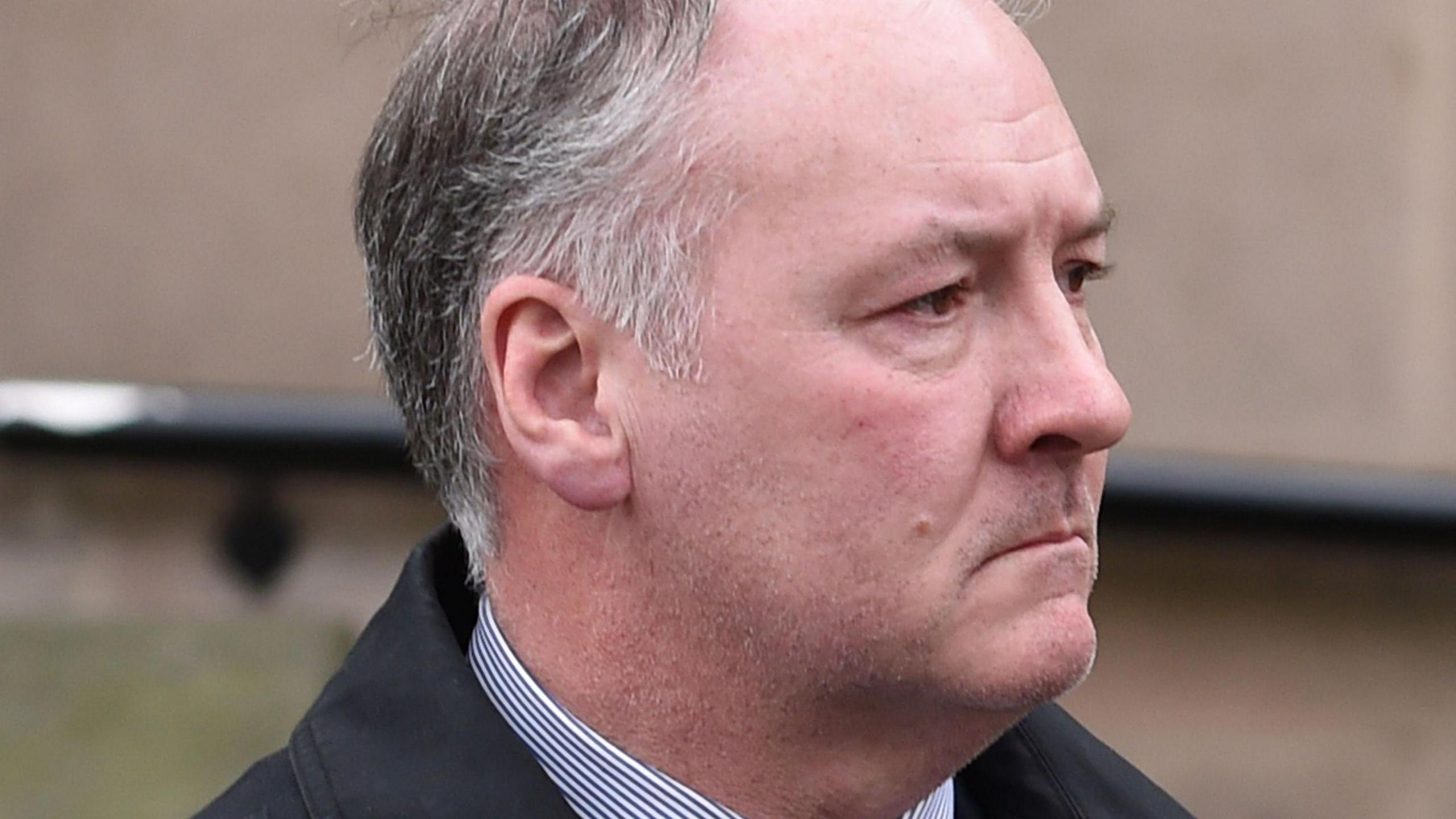Jailed breast surgeon must give inquest evidence

Paterson was jailed for 20 years in 2017
- Published
A coroner has ordered jailed breast cancer surgeon Ian Paterson to give evidence at the inquests of more than 60 of his former patients.
Paterson was jailed for 20 years in 2017 after being convicted of 20 counts of wounding.
He had refused to take part due to reasons including ill health, anxiety and a lack of facilities to prepare.
But coroner Judge Richard Foster refused an application by Paterson's solicitors to revoke a witness summons instructing him to give evidence.
Judge Foster said in his ruling, external Paterson could take part remotely by video link and his evidence would be of the "utmost assistance" and was in the public interest and that of bereaved families.
'Out of respect'
The coroner said the first inquest the former surgeon was expected to give evidence at would be that of Chloe Nikitas, which takes place at Birmingham and Solihull Coroner's Court on Tuesday.
The disgraced surgeon was found to have carried out unnecessary and unapproved procedures on more than 1,000 breast cancer patients over 14 years.
His controversial "cleavage-sparing procedures" meant cancerous breast tissue was left behind in many patients, while others had operations they did not need.
More than 560 patient deaths have been considered so far by a multi-disciplinary team of medical experts, leading to the opening of 62 inquests.
The coroner said Paterson was no longer required to provide generic evidence, which concerned his clinical practice, until a later stage of the process.
But he would be required to give evidence on days when required for individual inquests.
"I urge him to provide evidence and participate, if only out of respect for the 62 families of his former patients," he wrote.
"It is in the best interests of those bereaved families that his participation assists with the answering of their questions."
The coroner said he looked at the solicitors' application on the basis that Paterson had anxiety and depression.
He said it was obvious being a serving prisoner affected his ability to prepare and instruct his legal team.
"I can and will make every allowance for that," he said.
Last week Paterson's move to an open prison was cancelled following a risk assessment.
He had been due to transfer from a Category C to a Category D prison. The move had sparked anger among his victims and their families, with one describing it as a "kick in the guts".
But the Ministry of Justice said in a communication seen by the BBC it was rescinded after a change in the prisoner's risk assessment.
Get in touch
Tell us which stories we should cover in Birmingham and the Black Country
Follow BBC Birmingham on BBC Sounds, Facebook, external, X, external and Instagram, external.
Related topics
- Published10 October 2024

- Published7 October 2024

- Published18 October 2024
